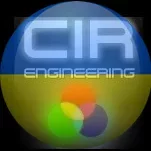-
Posts
767 -
Joined
-
Last visited

craigr replied to craigr's topic in Storage Devices and Controllers

craigr replied to craigr's topic in Storage Devices and Controllers

craigr replied to craigr's topic in Storage Devices and Controllers

craigr replied to craigr's topic in Storage Devices and Controllers

craigr replied to craigr's topic in Storage Devices and Controllers

craigr replied to craigr's topic in Storage Devices and Controllers

craigr replied to craigr's topic in Storage Devices and Controllers

craigr replied to craigr's topic in Storage Devices and Controllers